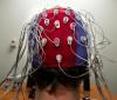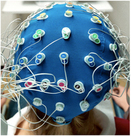|
|
Lingering Lies: The Persistent Influence of Misinformation
By Valerie Ross Scientific American Mind Blog July 18, 2011 The brain holds on to false facts, even after they have been retracted Wrong facts stick in memory
Science Alert University of Western Australia July 07, 2011 Misinformation...continued to influence memory and reasoning. Misinformation: Why it sticks and how to fix it
ScienceDaily (Sep. 19, 2012) — Childhood vaccines do not cause autism. Barack Obama was born in the United States. Global warming is confirmed by science. And yet, many people believe claims to the contrary. How Long Will a Lie Last? New Study Finds That False Memories Linger for Years
Scientific American Blogs By Kyle Hill | November 14, 2012 Diss Information: Is There a Way to Stop Popular Falsehoods from Morphing into "Facts"?
Scientific American By Carrie Arnold October 4, 2012 False information is pervasive and difficult to eradicate, but scientists are developing new strategies such as "de-biasing," a method that focuses on facts, to help spread the truth What's So Wrong With Being Absolutely Right:
The Dangerous Nature of Dogmatic Belief. Interview with Judy J. Johnson, PhD A psychology professor at Mount Royal University, Calgary, Alberta. Her ongoing research expands on her MSc thesis and PhD dissertation, both of which investigated the nature and measurement of dogmatism. Higher Job Performance Linked to People Who Are More Honest and Humble
Science Daily Mar. 1, 2011 The more honesty and humility an employee may have, the higher their job performance, as rated by the employees' supervisor. That's the new finding from a Baylor University study that found the honesty-humility personality trait was a unique predictor of job performance. How People Are Fooled by Evidence
Scientific American Nov 22, 2011 Rationality is the crowning achievement of our species. The ability to use evidence is true the cornerstone of science, medicine, and our legal .. Why Do People Believe Stupid Stuff, Even When They're Confronted With the Truth?
AlterNet / By David McRaney June 26, 2011 The "backfire effect" helps explain how strange, ancient and kooky beliefs resist science, reason and reportage. A letter to the TEDx community on TEDx and bad science
An email sent to the TEDx community regarding our view on bad science/pseudoscience talks at TEDx events. TED Tries to Clean Up Its Act via Sandwalk (Laurence A. Moran) on 12/8/12 Speaking Science: Why People Don’t Hear What You Say
A lesson in communication from Scientific American By Ingrid WickelgrenNovember 8, 2012 
The Power of Vigilant Doubt | In Their Own Words | Big Think
From bigthink.com - July 23, 2013 By occupying or inspecting or exploring other views of the world you can potentially identify some of the blind spo Wisdom of Ignorance: Knowing What You Don't Know
From www.theemotionmachine.com - September 21, 2013 There's an important kind of wisdom in knowing what you don't know. Recognizing what you don't know actually puts you in a unique place of power. |
| ||||||||
|
Humility Key to Effective Leadership
Science Daily December 8, 2011 Humble leaders are more effective and better liked, according to a study forthcoming in the Academy of Management Journal. The neuropsychology of good leaders making dumb mistakes
by Karlene M. Kerfoot Nursing Economics March-April, 2009 |

Smart Leaders Are OK with Seeming Uncertain
From hbr.org - February 10, 2015 Though it may be particularly hard for leaders to embrace uncertainty after years of being taught to display confidence, there is a clear business benefit in doing so. Research has shown that over-confident CEOs make overly risky decisions, often at the expense of their shareholders. Leaders who are able to come to terms with uncertainty and communicate it to employees may avoid such bad decisions. |
|
Creativity Requires Doubt, Blindness, and Mistakes
From feedproxy.google.com - June 23, 2013 What's the Latest Development? While we often speak of falling into error and rising to the truth, German intellectual Albert Hirschman had a different idea. Understanding brain performance: People who take Ritalin are far more aware of their mistakes
From www.sciencedaily.com - April 6, 2013 Researchers have investigated how the brain monitors ongoing behavior for performance errors – specifically failures of impulse control. People who take Ritalin are far more aware of their mistakes, a new study has found. 
How your brain reacts to mistakes depends on your mindset
"Whether you think you can or think you can't -- you're right," said Henry Ford. A new study finds that people who think they can learn from their mistakes have a different brain reaction to mistakes than people who think intelligence is fixed. |

Neuroscience shows why not everyone learns from their mistakes
From medicalxpress.com - June 4, 2013 Some people do not learn from their mistakes because of the way their brain works, according to research led by an academic at Goldsmiths, University of London. 
Some Learn From Mistakes, Others Don’t | Neuromarketing
From www.neurosciencemarketing.com - February 28, 2013 In Managing by Mistakes, I wrote about the power of learning from mistakes. Some of the most successful individuals in different fields credit relentless focus on even small mistakes with their high achievement. |
Science Needs Mistakes

Saul Perlmutter: 'Science is about figuring out your mistakes'
From www.guardian.co.uk - July 9, 2013 The astrophysicist who discovered that the universe is expanding at an accelerating rate tells Zoë Corbyn why he isn't afraid to fail 
Failure in real science is good – and different from phony controversies
From phys.org - February 10, 2015 Last March, the BICEP2 collaboration announced that they had used a microwave telescope at the South Pole to detect primordial gravitational waves. |
The importance of stupidity in scientific research
Martin A. Schwartz Department of Microbiology, University of Virginia Journal of Cell Science 121, 1771. 2008 doi:10.1242/jcs.033340
| ||||||
Mistakes and Learning

It’s a Mistake Not to Use Mistakes as Part of the Learning Process
From www.edutopia.org - November 8, 2014 “I recently heard a TED talk from Brian Goldman, a doctor who admits to having made mistakes.” 
Teacher's Guide to The Importance of Learning from Mistakes and Failures ~ Educational Technology and Mobile Learning
From www.educatorstechnology.com- August 13, 2013 |

Making Mistakes: Why They’re Crucial for Learning
From blogs.kqed.org - August 26, 2013 We try so hard to be perfect, to never make mistakes and to avoid failure at all costs. But mistakes happen — and when they do — how do we deal with being wrong? In this episode, TED speakers look at... |

